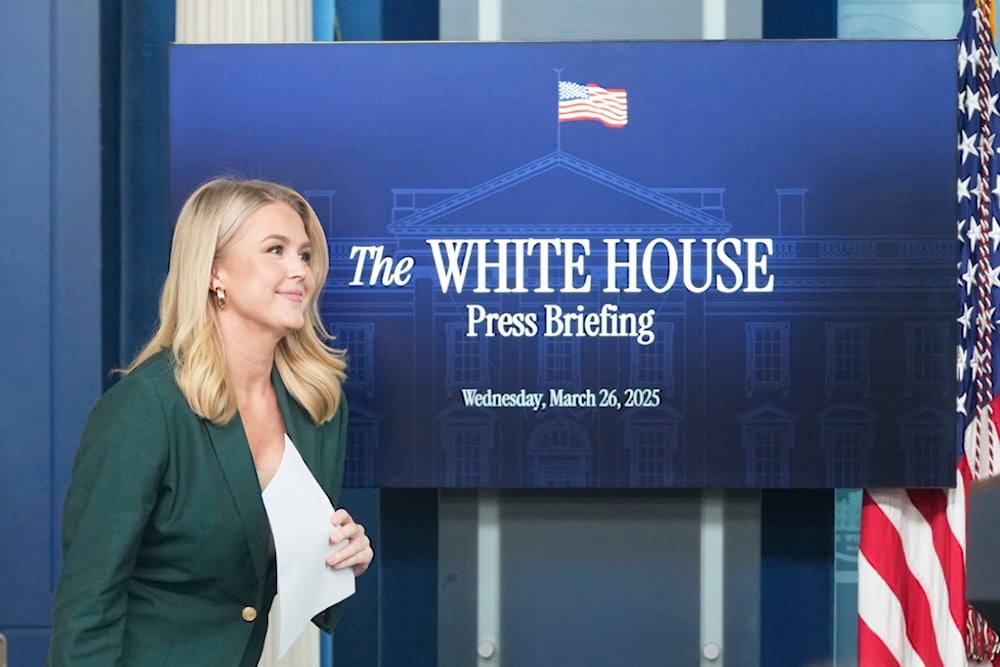White House dismisses concerns over Signal leak, affirms Waltz's role
Amid speculation about whether Waltz would be removed from his post over the matter, White House Press Secretary Karoline Leavitt told reporters that the administration considers the issue resolved and has no plans to make personnel changes.
-

White House press secretary Karoline Leavitt arrives for a briefing at the White House, Wednesday, March 26, 2025, in Washington (AP Photo/Mark Schiefelbein)
The White House announced Monday that it considers the recent controversy involving leaked military discussions on the Signal messaging app resolved, reaffirming National Security Adviser Michael Waltz's position despite backlash over the incident.
Last week, The Atlantic's editor-in-chief, Jeffrey Goldberg, revealed that on March 11 he was invited by Waltz to a Signal group chat titled "Houthi PC small group."
Inside the private conversation, senior officials, including Vice President JD Vance and Defense Secretary Pete Hegseth, were reportedly discussing imminent US military action against Yemen.
According to screenshots published by Goldberg, Hegseth disclosed both the types of fighter jets involved and specific strike targets several hours before the operations took place.
Amid speculation about whether Waltz would be removed from his post over the matter, White House Press Secretary Karoline Leavitt told reporters: "As the president has made it very clear, Mike Waltz continues to be an important part of his national security team, and this case has been closed here at the White House, as far as we are concerned. There have been steps made to ensure that something like that can obviously never happen again, and we're moving forward."
Read more: Israeli officials complained about Signal chat incident: Report
Multiple US media outlets, citing unnamed sources, reported that President Trump was angered by the leak and initially considered dismissing Waltz.
However, The Wall Street Journal reported that Trump ultimately opted to retain his adviser, believing that removing him would appear as an admission of fault by the administration.

 2 Min Read
2 Min Read








